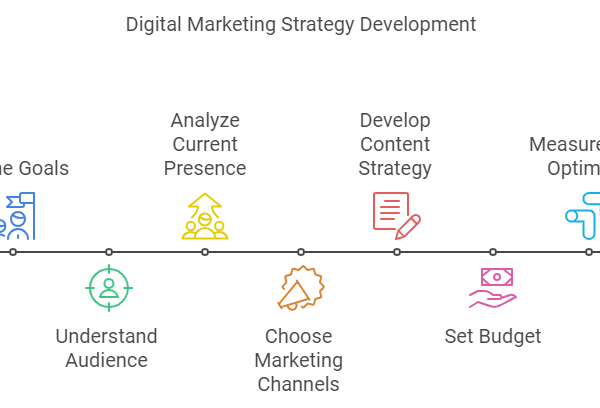
In the contemporary business landscape, the importance of cohesive and high-performing teams cannot be overstated. As organizations strive to achieve ambitious goals and adapt to a rapidly changing environment, the role of effective team dynamics becomes increasingly critical. One powerful strategy to enhance collaboration and performance within teams is through professional team coaching services. This guest post delves into how team coaching can transform team dynamics, boost performance, and ultimately drive organizational success.
Understanding Team Coaching
Team coaching is a structured process where a skilled coach works with a team to improve its overall functioning, communication, and collaboration. Unlike individual coaching, which focuses on personal development, team coaching addresses the collective dynamics and capabilities of the entire team. The primary goal is to enhance how team members interact, solve problems, and work together to achieve common objectives.
The Core Components of Effective Team Coaching
Assessment and Diagnosis
The first step in any team coaching program is a thorough assessment of the team’s current state. This involves evaluating team dynamics, communication patterns, individual roles, and overall performance. Coaches use a variety of tools, such as surveys, interviews, and direct observation, to gather insights into the team’s strengths and areas for improvement.
Goal Setting and Alignment
Based on the assessment, the coach works with the team to set clear, measurable goals. These goals should align with the broader organizational objectives and address the specific needs identified during the assessment phase. Goal setting helps to create a shared vision and provides a roadmap for the coaching process.
Action Planning
With goals in place, the next step is to develop a detailed action plan. This plan outlines specific steps, timelines, and responsibilities, ensuring that everyone knows what is expected of them. An effective action plan is crucial for maintaining focus and momentum throughout the coaching process.
Implementation and Facilitation
During the implementation phase, the coach facilitates regular sessions with the team. These sessions can include workshops, training activities, and team-building exercises designed to address specific issues and enhance overall team performance. The coach also provides ongoing feedback and support to help the team stay on track.
Evaluation and Feedback
Continuous evaluation is essential for ensuring the effectiveness of the coaching program. The coach collects feedback from team members and other stakeholders to assess progress and make necessary adjustments. This iterative process helps to refine the coaching approach and ensure that the team is moving toward its goals.
Sustaining Improvements
The final component of team coaching is to develop strategies for sustaining the improvements achieved. This may involve creating structures for ongoing feedback, establishing regular check-ins, and promoting a culture of continuous improvement. The goal is to ensure that the positive changes are embedded in the team’s daily practices and behaviours.
Benefits of Professional Team Coaching Services
Enhanced Communication
One of the primary benefits of team coaching is improved communication. Effective communication is the foundation of any high-performing team. Through coaching, team members learn to express their ideas clearly, listen actively, and provide constructive feedback. This leads to a more open and transparent communication environment, reducing misunderstandings and conflicts.
Improved Collaboration
Team coaching fosters a culture of collaboration by encouraging team members to work together toward common objectives. Coaches use techniques to break down silos, build trust, and promote mutual respect among team members. Improved collaboration enables the team to leverage diverse perspectives and skills, leading to more innovative solutions and better problem-solving.
Increased Accountability
Accountability is crucial for team success. Team coaching helps to establish clear expectations, define roles and responsibilities, and create a sense of ownership among team members. This not only boosts individual performance but also ensures that the team as a whole remains aligned and focused on its objectives.
Higher Morale and Engagement
A well-coached team is a motivated and engaged team. By addressing interpersonal issues and creating a supportive environment, team coaching helps to boost morale and engagement. Team members feel valued and understood, leading to higher job satisfaction and a stronger commitment to the team’s success.
Better Problem-Solving and Innovation
High-performing teams excel at problem-solving and innovation. Team coaching encourages creative thinking and diverse perspectives, which are crucial for identifying innovative solutions and driving continuous improvement. This leads to a more agile and adaptable team capable of meeting evolving business needs.
Implementing Team Coaching in Your Organization
For organizations looking to implement team coaching, here are some key steps to consider:
Identify the Need
Determine if team coaching is the right solution for your organization. This may involve conducting a needs assessment to identify specific performance issues or areas for improvement.
Choose the Right Coach
Selecting a qualified and experienced coach is crucial for the success of the coaching program. Look for coaches with a proven track record, relevant industry experience, and a coaching style that aligns with your organization’s culture.
Set Clear Objectives
Define clear, measurable objectives for the coaching program. These should align with your organization’s goals and address the specific needs of the team.
Engage the Team
Ensure that team members are engaged and committed to the coaching process. This may involve explaining the benefits of coaching, addressing any concerns, and involving them in the goal-setting process.
Monitor Progress
Regularly monitor the progress of the coaching program and make necessary adjustments. Collect feedback from team members and stakeholders to ensure that the program is meeting its objectives.
Sustain Improvements
Develop strategies to sustain the improvements achieved through coaching. This may involve creating structures for ongoing feedback, establishing regular check-ins, and promoting a culture of continuous improvement.
Conclusion
Professional team coaching services are a powerful tool for enhancing collaboration and performance within teams. By focusing on improving communication, fostering collaboration, and increasing accountability, team coaching can help organizations achieve their goals and drive success. The benefits of team coaching are clear: improved performance, increased morale and engagement, better problem-solving, and a stronger commitment to the team’s success.
For organizations looking to unlock the full potential of their teams, investing in team coaching is a smart and strategic decision. Companies like Abroad specialize in providing comprehensive team coaching services tailored to meet the unique needs of each organization. With the right approach, team coaching can transform teams, foster a culture of excellence, and pave the way for long-term success.











